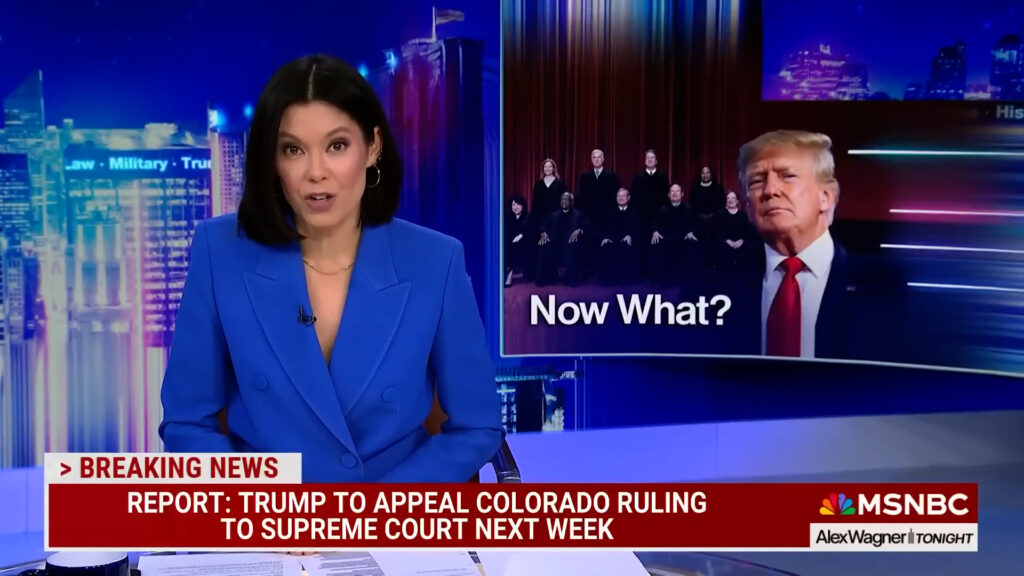If one follows the Constitution as a textualist and originalist, Trump cannot run for the presidency. Failure to execute will put the nail in the coffin of this SCOTUS.
SCOTUS HAS NO CHOICE
Podcasts (Video — Audio)
The accompanying video thoroughly examines former President Donald Trump’s constitutional eligibility to run for the presidency again. The central argument pivots on interpreting the 14th Amendment of the U.S. Constitution, specifically Section 3, which addresses the ramifications of involvement in an insurrection. This discussion is particularly relevant given the multiple lower court rulings that have found Trump personally engaged in insurrection.
The narrative delves into the legal philosophy of originalism, a principle often embraced by conservative Supreme Court Justices. Originalism focuses on interpreting the Constitution as it was understood when it was written. The Colorado State Supreme Court’s extensive research supports the argument that the 14th Amendment’s stipulations regarding insurrection apply unequivocally to presidents and presidential candidates. This finding challenges the justices to stay true to their originalist beliefs or possibly yield to partisan pressures.
A significant portion of the video focuses on historical evidence from the 1860s, specifically a conversation between Senators during the crafting of the 14th Amendment. MSNBC host Alex Wagner points out that the historical context is crucial as it sheds light on the intentions of the Amendment’s framers. Senator Reverdy Johnson’s concerns about excluding past rebels from presidential eligibility and Senator Lot Morill’s clarification that the presidency is indeed covered under the phrase “or hold any office, civil or military, under the United States” highlights the Amendment’s comprehensive nature.
The legal and political implications of this interpretation are far-reaching. The Colorado State Supreme Court’s ruling has placed the U.S. Supreme Court’s conservative justices in a challenging position, forcing them to choose between their originalist legal philosophy and potential partisan biases. This decision not only impacts Trump’s eligibility to appear on the Colorado Republican primary ballot but also has wider implications for his potential candidacy in the general election across various states.
Lastly, the video contextualizes this constitutional debate within the broader framework of historical electoral outcomes. It recalls instances, such as the elections involving Al Gore and Donald Trump, where the results were accepted in accordance with constitutional provisions despite popular vote discrepancies. This reflection calls for adherence to constitutional principles, emphasizing the need to follow the Constitution’s guidance irrespective of political leanings or outcomes of past elections. This perspective underscores the importance of upholding constitutional norms and values, especially in the face of politically charged and divisive issues.
Viewers are encouraged to subscribe and join the conversation for more insightful commentary and to support progressive messages. Together, we can populate the internet with progressive messages that represent the true aspirations of most Americans.

